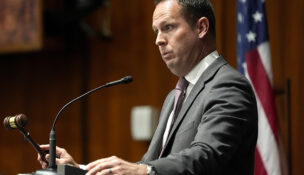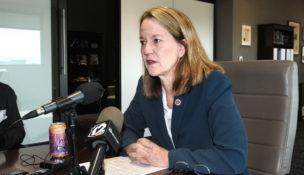'Plead to the Lead'
Arizona Capitol Reports Staff//October 17, 2008//[read_meter]
Prisoners who have been sentenced are led to a bus to take them back to jail, following a morning in court. Roughly four years ago, a “No Deals” policy used...
No tags for this post.

















